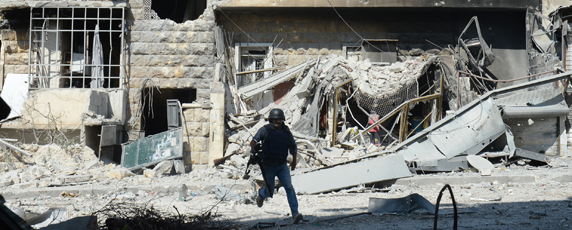Attacks on the Press in 2012: Ecuador
The press freedom climate continued its sharp decline under President Rafael Correa. Courts upheld defamation convictions against executives of the daily El Universo and authors of the book Big Brother in connection with their critical coverage of the Correa administration. The president, who initiated the complaints, later pardoned the journalists, but the rulings cast a…
Attacks on the Press: Killed in 2012: A Worldwide Roundup
Killed in 2012: A Worldwide Roundup The number of journalists killed in the line of duty rose sharply in 2012, as the war in Syria, a record number of shootings in Somalia, continued violence in Pakistan, and a worrying increase in Brazilian murders contributed to a 49 percent increase in deaths from the previous…
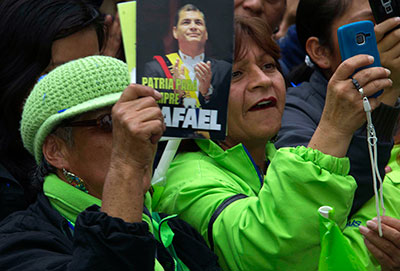
Electoral law dulls reporting as Correa nears re-election
It’s by far the dullest space in the newspaper: Every day in El Universo, Ecuador’s leading daily, readers can find eight small photos and news blurbs summing up the activities of the eight presidential candidates. The articles are the same size and blocked together in a layout that resembles a tic-tac-toe game, minus the ninth…
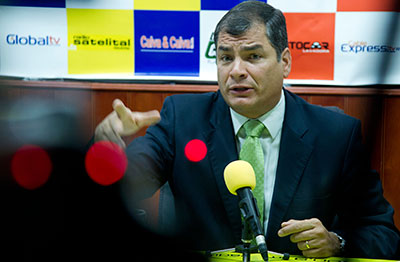
In Correa’s Ecuador, a bulletin on breakfast is routine
On September 11, 2012, the Ecuadoran government interrupted a morning newscast on the Teleamazonas TV station for an official bulletin. What could be so urgent? A coup d’etat? An earthquake? A cholera outbreak? It turned out the government sought to clarify what President Rafael Correa had for breakfast.
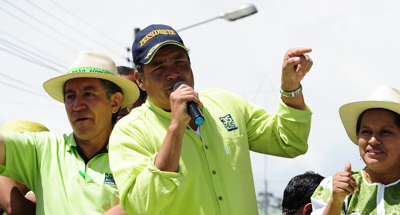
Repression deepens as Correa heads to new term
One result of President Rafael Correa’s high-profile campaign to demonize the country’s private media can be seen on the desk of José Velásquez, news manager at Teleamazonas, a private Quito television station often critical of the government. Among the documents piled high on his desk are lawsuits, which used to be a rare thing. Encouraged by…
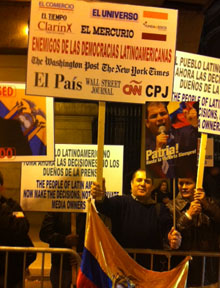
Correa supporters protest as Cabot winners celebrated
The Maria Moors Cabot Prizes, administered by Columbia University Graduate School of Journalism in recognition of journalistic contributions to Inter-American understanding, are the oldest international prizes in journalism. But Josh Friedman, director of the prizes, said this year marked the first time he remembered arriving at the awards ceremony to be greeted by protesters screaming…
Ecuador fines newsmagazine over opinion column
Bogotá, October 4, 2012–The Committee to Protect Journalists condemns the exorbitant fine imposed upon a Quito newsmagazine for an opinion column related to a national referendum and urges Ecuadoran authorities to ensure that election regulations are not used to punish outlets for critical coverage.
